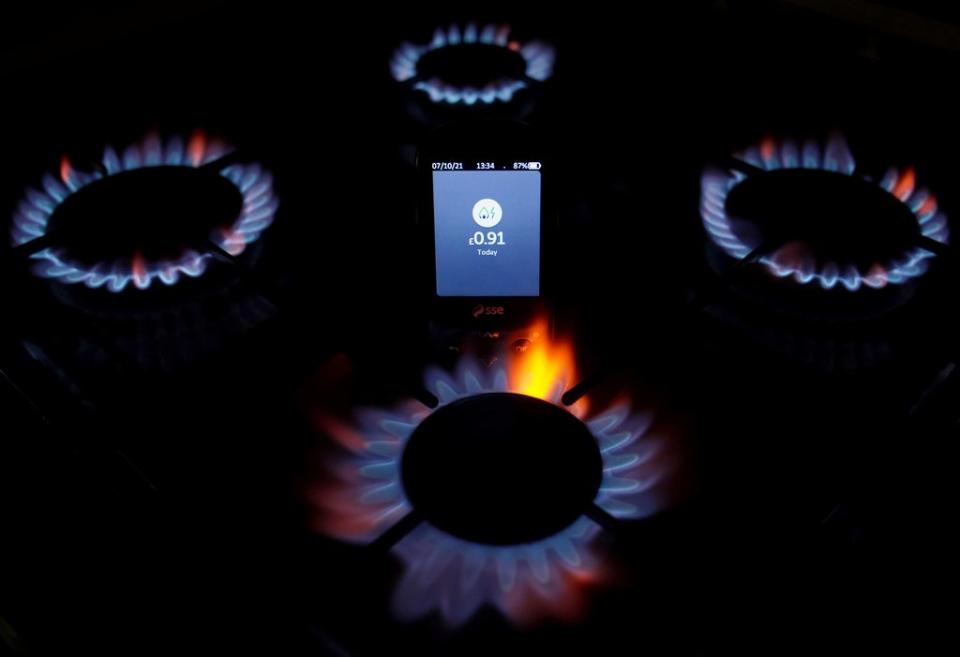How to solve the energy crisis – and what to do if you can’t pay your bill

The energy crisis is in full swing, with more rises on the way, but how did it come to this and what can you do if you can’t pay your next bill?
I’ve been writing about energy prices for 10 years and I used to regularly talk about the benefits of switching suppliers, which at the time would save those who hadn’t moved providers in a while between £200 and £300 a year.
This was when small providers were appearing on an almost weekly basis offering cheaper and cheaper deals, usually fixed for a year before customers were encouraged to switch again to another deal. Those days may have only been six months ago, but they’re long gone.
Since then, we’ve seen extortionate price rises, scores of providers going into administration, and few hopes that things are going to get better any time soon. But how did it come to this, and what do we do now?
Ofgem’s energy cap, introduced in January 2019, was brought in to protect the 15 million households on their provider’s standard variable tariff who used to typically pay the most expensive bills, when fixed-rate tariffs were a lot cheaper.
Now, in a grim turn of events, the cap is the cheapest option for most and it’s predicted that it could rise to as much as £2,000 a year, on average, on 1 April. This is on top of the rise of £139, to £1,277, which came in last October as a result of increasing wholesale prices.
Wholesale prices have risen largely because of a problem of a lack of supply and a high demand for gas, the main source of energy used in the UK. It’s been caused by a colder than normal winter in Europe, increased demand from China and a summer with less wind than usual, which affected the supply of gas.
With no end in sight to the energy crisis, some providers have called on the government to suspend the VAT on energy bills or to scrap the green levies suppliers pay, which go towards funding green energy programmes including low-carbon electricity production.
Centrica’s chief executive, Chris O’Shea, said if green levies were removed this could save families £170 a year and avoid a government bailout of the energy suppliers. But money from the levy goes towards paying for insulation for some of the poorest households in the UK, those that will be suffering most right now. It also funds alternative sources to fossil fuels and, given that our overreliance on these is one of the reasons we’re in the energy crisis, to many it would be completely counterproductive to scrap the levy.
More importantly, renewables are helping to soften the blow of increasing energy prices to the tune of £160m a year. Recent figures suggest a failure to invest in cheaper renewable energy is now costing households an extra £140 each every year. Indeed, Greenpeace has said a one-off “windfall tax” on fossil fuel companies could alleviate the crisis, given that many of these companies are set to profit from it.
Meanwhile, charities and other organisations are calling for the government to announce other measures to help the millions of households struggling to pay their energy bills.
Citizens Advice has made a range of suggestions including a one-off payment to be made to those in low-income households through the benefits system, an increase to benefits in line with rising inflation levels, for the increase in bills to be spread over a period of two to three years, and to increase and extend the warm home discount.
Age UK has said that 82 per cent – equivalent to more than 10 million over-65s – think the government should step in to help poorer older people pay their energy bills.
Caroline Abrahams, charity director at Age UK, said: “The number of older people who are worried about being able to heat their homes is staggering and should be a source of shame for this government. Millions of older people across the UK are absolutely dreading the imminent price cap announcement and urgently need reassurance that help is on its way so they can keep their heating on. This is a national crisis that needs a swift and decisive response from ministers.”
While we wait and hope for change, there are several grants and discounts available for those struggling to pay their bills. They include the warm home discount scheme, which enables some £140 off their electricity bill, the winter fuel payment for those born on or before 26 September 1955, and cold weather payments, due if the weather falls below a certain temperature.
But these aren’t for everyone, and those who usually struggle with their bills may already be receiving the benefits available. If you can’t pay your energy bill, speak to your provider. It should be able to offer a payment plan you can afford and give you details of any grants it offers.
Tashema Jackson, energy specialist at Energyhelpline.com, said: “For people who are living in energy poverty, there is help available in the form of the warm home discount and the cold weather payments, but these only trigger under a specific set of circumstances, so for many bill payers there may be no support at all. If you are unable to pay your bills, let your supplier know straight away, they should be able to help – as many have grants for those who are really struggling.”

 Yahoo Finance
Yahoo Finance 